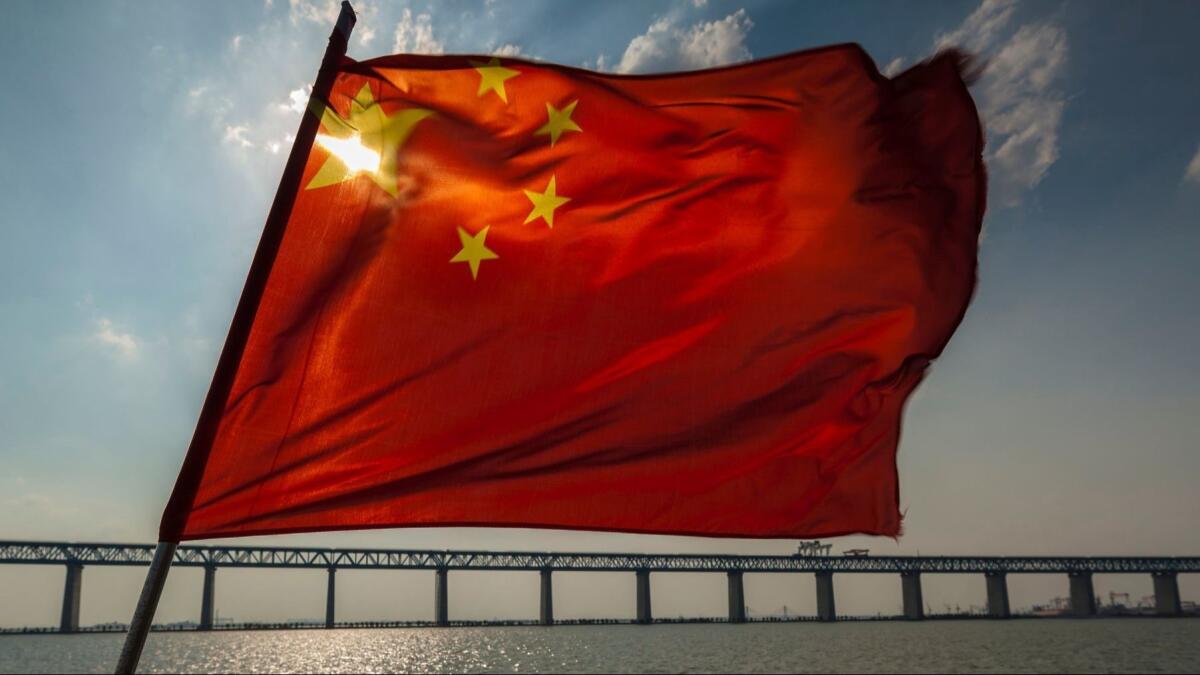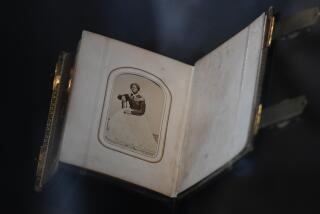Resistance, far from futile, is an an artistic triumph that spans cultures

- Share via
After decades of isolation under communist rule, Shanghai was emerging on the world stage, bolstered by an economic resurgence, and I wanted to be part of it.
It was 1988, and my U.S. employer moved me to Shanghai, China’s most progressive city, to manage a new performing arts theater.
It was a chance to create a new business enterprise in this enormous authoritarian country, gaining international management experience and building my résumé.
My first task was to monitor the theater’s construction. I was soon circulating among Chinese government officials to understand how to navigate the red tape I would need to untangle to open and operate the theater.
This included meeting with the director of Shanghai’s cultural affairs office. His staff would approve, monitor and even censor the programs I proposed for the theater, he told me. I had anticipated this, but even knowing it was possible, I had some concerns.
A change in plan
Then, in April 1989, “Democracy Spring” arrived. In Shanghai and Beijing, thousands of students marched, demanding greater freedom of expression.
Shanghai’s roadways swelled with so many marchers that getting to my office was dangerous. Martial law was declared in Beijing, and the military appeared on some streets in Shanghai.
Tensions continued to escalate.
In the early morning of June 4, a colleague phoned to tell me about Beijing’s Tiananmen Square, where more than 200 people were killed (later estimates said it was many more), 7,000 injured and thousands arrested. Our company ordered all expatriate employees to evacuate to our countries of origin and await further instructions.
Taxis to the airport were scarce, but I eventually flagged one. The driver swerved around barricades and overturned buses, maneuvered through rice paddies and delivered me in time to board the last commercial flight out of Shanghai for the foreseeable future.
Back in Southern California where I grew up, I increasingly thought of the young people who had sacrificed so much for freedoms I took for granted. Could I respond in any meaningful way?
As the manager of a theater, I realized I was uniquely positioned to express ideas onstage. It would require an unusual degree of cooperation and trust, beginning with Shanghai’s cultural affairs office.
I wanted to go back.
By August, the company considered the city safe and let me return to a China that was very changed. A purge of ranking officials had humbled this once-confident city.
I was welcomed back to work by one of our Chinese employees who had just returned from “re-education.” His face bore marks of a beating, and he was missing some teeth.
Seeing him stiffened my resolve to do something.
The director of the cultural office, who had somehow survived the political turmoil, talked of his support for the arts and how the new theater would play a vital role in Shanghai’s resurgence as an international cultural capital.
I shared my hope that staging concerts, dramas, modern dance performances, operas, ballets and other kinds of performing arts from around the world would challenge Shanghai audiences, which he acknowledged with an encouraging nod of the head.
At our third meeting, he introduced the chief censor, who explained the intricacies of approving artists and programs.
But then something extraordinary happened.
“There is a saying in China,” he said, “that the first time we meet we are friends, the second time very good friends, but the third time we meet we are family.”
Family matters
With construction finished and the theater opening soon, I proposed presenting a touring modern dance company. The arts censor objected to the title of one work in the troupe’s repertoire called “Prayer,” which, he said, had forbidden religious overtones.
My suggested title change was the more secular “Meditation.” He accepted that and left the artistic content untouched, a sign, perhaps, that things were loosening, maybe even a nudge toward more creative expression.
Three years later, as my Shanghai posting ended, I looked back on the hundreds of performances and performers from 15 countries: Meryl Tankard’s avant-garde dance company from Australia, American productions of “Driving Miss Daisy” and “The Joy Luck Club,” and works by George Balanchine, all unseen to date in China.
It was my tribute to those who sacrificed for freedom. And it made me a firm believer that people of goodwill from vastly different cultures, whether they visit for three days or three years, can share a vision for a better world.
Departure Points, a monthly column, explores the ways in which traveling changes us, whether it’s a lesson learned or a truth uncovered. You may submit a first-person essay of 700 words or fewer to travel@latimes.com with “Departure Points” in the subject line. Please include your first and last names and your contact information for editorial consideration.
More to Read
Sign up for The Wild
We’ll help you find the best places to hike, bike and run, as well as the perfect silent spots for meditation and yoga.
You may occasionally receive promotional content from the Los Angeles Times.






